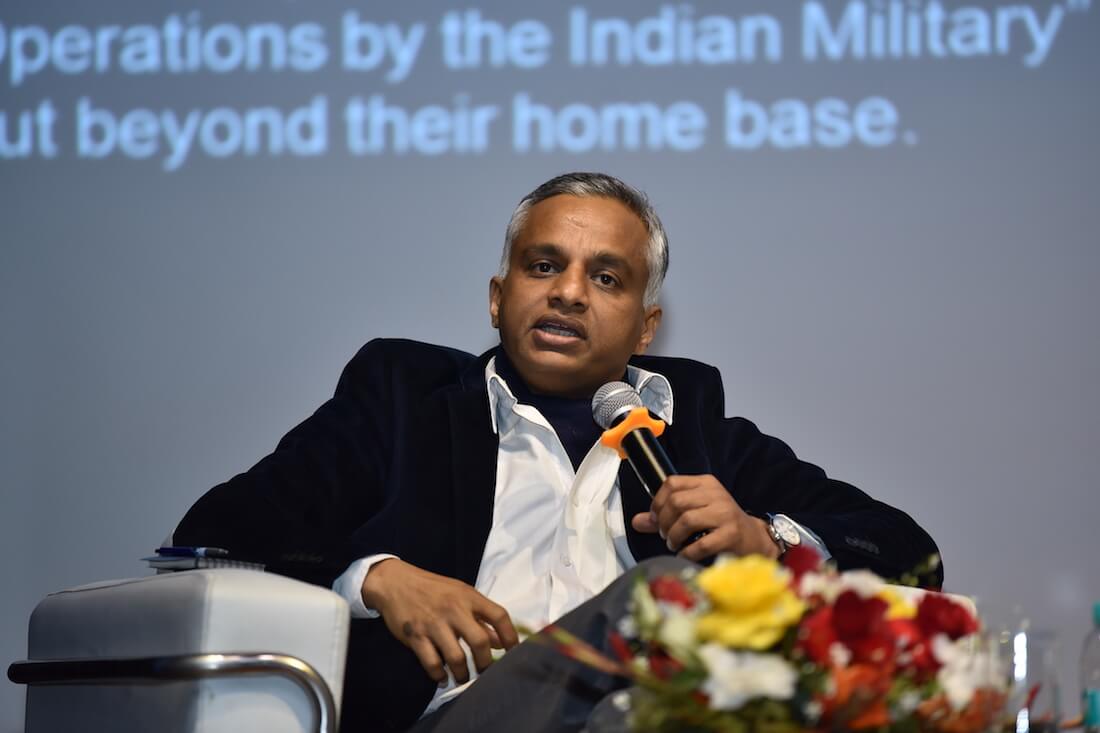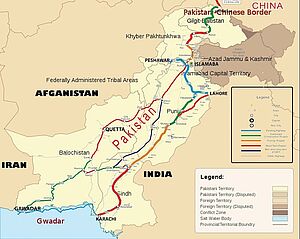India is wary of the Chinese engagement with its neighbours

India has been wary of China's Belt and Road Initiative, a large infrastructural undertaking that seeks to reactivate the legendary Silk Roads. Staying clear from the project plans along the land and sea-based corridors that have been traced with the old-new Silk Road routes, India's particular position towards the Belt and Road Initiative (BRI) will come with repercussions for the country’s engagement with its neighbours, and for South Asia as a region.
To find out more, FES Connect spoke to Sushant Singh, associate editor at the Indian Express, a leading English-language daily newspaper published in Mumbai. A journalist and analyst focusing on issues pertaining to national security, strategic affairs and international relations, Sushant has also been working with Friedrich-Ebert-Stiftung (FES) in India as part of its work on India-Pakistan relations and the current engagement effort between the two countries.
FES Connect: China's gigantic Belt and Road Initiative (BRI) is expected to challenge the current global order and geopolitics. In which dimensions do you foresee this happening predominantly?
Sushant Singh: We must remember that the BRI is more than just a trade and investment project. It spans more than 60 economies at the last count, amounting to over 60 per cent of the world's population, and over 46 per cent of global GDP, and these areas share almost nothing in common except the future connection with China.
There are three things that make BRI significantly different. First, the inclusion of the vast and neglected region of "stans"—from Kazakhstan to Turkmenistan to Uzbekistan—and the convulsive Islamic states around Iran and Iraq, and north Africa. Second, the clear priority of infrastructure-building, whether roads and railways, or gas and oil pipelines in various areas. And third, the global attention has been wilfully turned away from the United States or other Western democratic countries.
Nepal, Sri Lanka and Maldives are prime examples of countries where Chinese investment and loans for infrastructure creation have pushed India onto the back foot.
The foremost manner in which it challenges the global order is by establishing Chinese primacy across geographies, integrating them but with the central control lying with Beijing. In combination with the Trump administration's recent pronouncements, the BRI further pushes the United States into an isolated corner wherein it is no longer interested in fulfilling its global responsibility. Most importantly, it sends a signal to all developing countries and societies globally that an authoritarian model like the Chinese one is worth emulating, if they desire to succeed.
From India's institutional perspective, how is China’s push into the world with this BRI and especially into India’s neighbouring countries perceived? Why has India not joined the initiative so far?

SS: India is extremely unhappy with the Chinese push into the neighbourhood through the BRI. Particularly with Pakistan, it sees the China-Pakistan Economic Corridor (CPEC)— an integral component of BRI—as a strategic threat to India. The CPEC is not seen just as an economic project but also a security-centric one, especially when the infrastructure can be used for military purposes. Gwadar port is a prime example of such dual-use infrastructure.
With other countries of the neighbourhood, India sees the BRI as Chinese attempts to curtail India's influence, which will pose a long-term diplomatic challenge for New Delhi. Nepal, Sri Lanka and Maldives are prime examples of countries where Chinese investment and loans for infrastructure creation have pushed India onto the back foot. India is unwilling to accept Chinese hegemony in the region and has therefore decided not to be a part of the initiative.
In what way has the topic of the Belt and Road Initiative been featured in India's media? What are the different schools of thought in the Indian media regarding this initiative?
SS: There are primarily two lines of thought in the Indian media: one has been to support the government’s argument that India can’t afford to bow to Chinese hegemonic designs in the region, while Beijing continues to support and protect Pakistan as it hurts India. And the second line has been to explore ways in which India could benefit in terms of trade and economic engagement from BRI without subverting its core strategic interests. The views have been shaped by the rising tensions between India and China on the disputed border since the face-off last June on the Bhutan-India-China border between the two armies. There is little appetite in public perception for an argument, which would mean accepting China's primacy in bilateral relations.
What has been India's policy response to the Belt and Road Initiative?
SS: There is very little that India can do, except to stress the importance of building healthier relations with its neighbours, highlighting cultural ties and historical engagement. The other response is to contain Pakistan by creating an international consensus against its support of terrorism, so that it cannot flourish under Chinese patronage and target India. In its dealings with China, New Delhi is trying to stave off tensions and avoid any military conflict while trying to correct the vast imbalance in trade between the two Himalayan neighbours. India is also trying to form an informal diplomatic grouping with the United States, Japan and Australia in the Indo-Pacific region, to temper Chinese ambitions in the region.
If you had a chance to talk to policy makers what would you recommend they do with the initiative?
SS: I would ask them to see if India could create a smaller version of its own network of projects for the neighbourhood which could be linked to BRI, but become an engine of growth on their own. Losing influence in the neighbourhood would be detrimental to Indian interests and weaken India's rise, and ensuring that this doesn’t happen should be the immediate priority for Indian policy makers. ###
For contact with Sushant Singh and more information on the work of FES in India visit the country office website.
ERROR: Content Element with uid "43736" and type "gridelements_pi1" has no rendering definition!
About FES Connect
Connecting people, in the spirit of social democracy, we source and share content in English from the German and international network of the Friedrich-Ebert-Stiftung.




